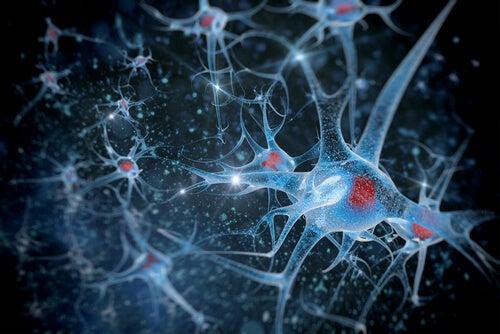You probably know the saying, ‘you can’t teach an old dog new tricks’. Nevertheless, the latest studies in neuroplasticity indicate the opposite. In fact, many have known for a long time that it’s always possible to learn new things, even in old age. In other words, you have the ability to continue learning throughout your life.
No doubt you know that you were born with millions of neurons and that, once dead, they can’t be replaced. This might well make you wonder how it’s possible that, despite losing thousands of neurons over the years, your ability to learn and assimilate new information can remain?
The secret lies in your brain’s ability to create new neural connections from learning. As a matter of fact, every time you perform the same actions but in a different way, or when you learn new words in another language, you’re creating new synapses, putting your most crucial organ to work.
Plasticity of the brain
Neuroplasticity is a term that refers to the innate ability of the brain to adapt, form new neural connections, and strengthen synapses between neurons throughout your life. It occurs as a response to your lived experiences, development, and learning.
Studies consider plasticity as a process of constant remodeling of the brain. It allows you to perform a large number of tasks. Among them, assimilating new information, creating new memories, and being able to continue learning something new every day. This is despite the normal decline in cognitive ability that comes with aging, both physically and mentally.
Encourage continued learning
The most interesting thing about neuroplasticity is that no ‘external’ help is needed to put it into operation. In fact, it’s the everyday situations that lay the foundations for this kind of learning. Thus, developing neuronal plasticity isn’t a difficult task, it all depends on your persistence and effort in the process of exercising your brain.
What keys can you put in place to continue learning?
Some studies claim that there are certain habits that are of benefit when it comes to keeping your brain active and ‘young’. Among them are:
- Being analytical: Observe what’s around you, watch, and analyze if you want to continue learning day by day. One of the mental operations that you can perform is memorization. For example, counting how many trees there are on a stretch of sidewalk can activate, almost without realizing it, many areas of your brain. Among them, are the reception of ideas, the ability to remember, and thinking. You could also try piecing together what you’ve done today since you woke up. Or memorizing a song.
- Get enough sleep: Achieving an adequate quantity and quality of sleep is essential for the proper development of your brain. In fact, the process of consolidating learned information occurs while you’re resting at night. Furthermore, studies show that people who suffer from insomnia have difficulty retaining new information.

- Challenge your limits: Completing a crossword puzzle, doing a jigsaw, or using your less skilled hand to perform tasks helps your intellectual development. These activities, despite being simple, require concentration and reasoning. This eventually contributes to the creation of new neural connections.
Neuroplasticity
Your brain is possibly the most important organ in your body. In addition, its development isn’t limited to the first years of your life, but it’s constantly evolving and changing. Continuing to learn is inevitable. For this reason, neuroplasticity is something your brain achieves on a daily basis.
Research on neuroplasticity is booming and neurorehabilitation techniques are steadily increasing. Recently, a proposal was made to apply these to people suffering from Down’s Syndrome. The objective is for them to take advantage of the benefits of brain neuroplasticity as it’s able to activate and promote the structures they were born and have grown up with. It should help them develop more efficiently. Neurorehabilitation has also been used for children with Autism Spectrum Disorder (ASD).
The post Your Brain and Its Ability to Keep Learning appeared first on Exploring your mind.



















Comments